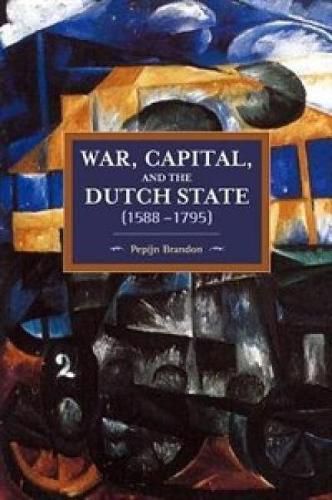Readings Newsletter
Become a Readings Member to make your shopping experience even easier.
Sign in or sign up for free!
You’re not far away from qualifying for FREE standard shipping within Australia
You’ve qualified for FREE standard shipping within Australia
The cart is loading…






Winner of the 2014 D.J. Veegens prize, awarded by the Royal Holland Society of Sciences and Humanities. Shortlisted for the 2015 World Economic History Congress dissertation prize (early modern period). In War, Capital, and the Dutch State (1588-1795), Pepijn Brandon traces the interaction between state and capital in the organization of warfare in the Dutch Republic from the Dutch Revolt of the sixteenth century to the Batavian Revolution of 1795. Combining deep theoretical insight with a thorough examination of original source material on topics as diverse as the role of the Dutch East- and West-India Companies, the inner workings of the Amsterdam naval shipyard, state policy, and the role of private intermediaries in military finance, Brandon provides a sweeping new interpretation of the rise and fall of the Dutch Republic as a hegemonic power within the early modern capitalist world-system.
$9.00 standard shipping within Australia
FREE standard shipping within Australia for orders over $100.00
Express & International shipping calculated at checkout
Winner of the 2014 D.J. Veegens prize, awarded by the Royal Holland Society of Sciences and Humanities. Shortlisted for the 2015 World Economic History Congress dissertation prize (early modern period). In War, Capital, and the Dutch State (1588-1795), Pepijn Brandon traces the interaction between state and capital in the organization of warfare in the Dutch Republic from the Dutch Revolt of the sixteenth century to the Batavian Revolution of 1795. Combining deep theoretical insight with a thorough examination of original source material on topics as diverse as the role of the Dutch East- and West-India Companies, the inner workings of the Amsterdam naval shipyard, state policy, and the role of private intermediaries in military finance, Brandon provides a sweeping new interpretation of the rise and fall of the Dutch Republic as a hegemonic power within the early modern capitalist world-system.